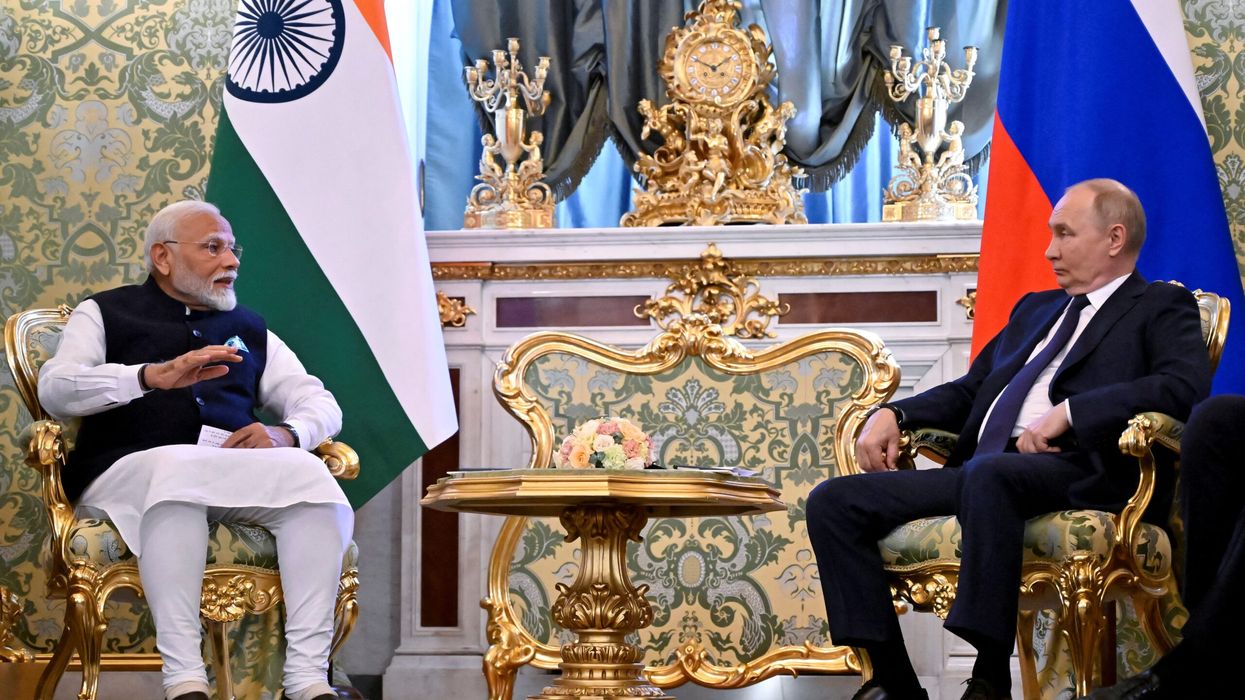India’s prime minister Narendra Modi told Russian president Vladimir Putin on Tuesday (9) that the death of innocent children was very painful, a day after a lethal strike on a children's hospital in Kyiv.
The Indian leader made the televised remarks at a meeting with Putin in the Kremlin.
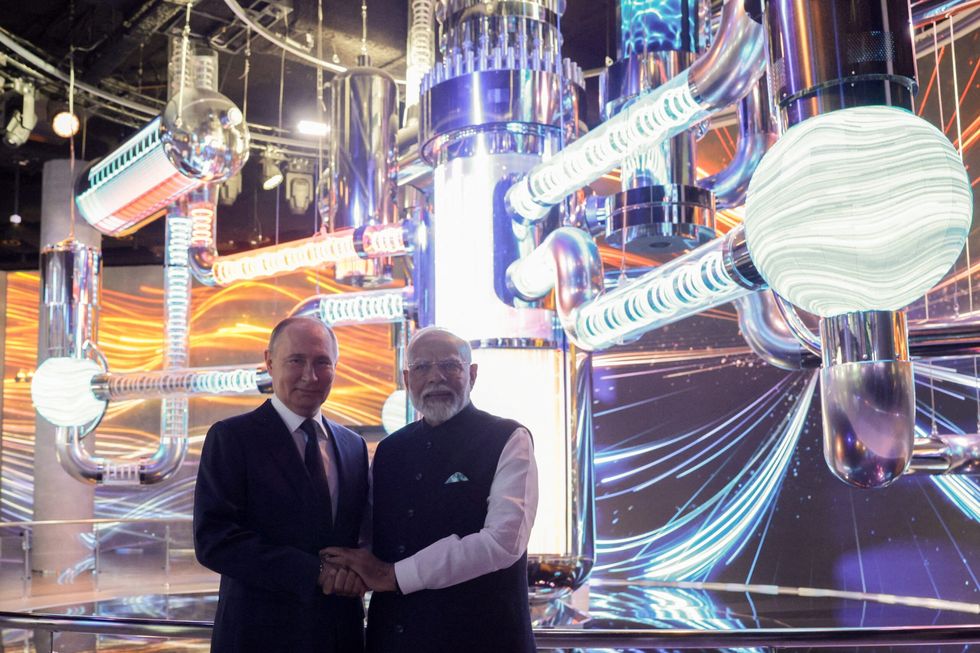
Ukraine president Volodymyr Zelensky on Tuesday slammed Modi’s visit to Russia, saying in a message on social media, “It is a huge disappointment and a devastating blow to peace efforts to see the leader of the world's largest democracy hug the world's most bloody criminal in Moscow on such a day.”
Ukraine said it has recovered fragments of a Russian Kh-101 cruise missile at the hospital, which was hit on Monday (8) during a wave of Russian attacks that killed at least 41 Ukrainians across the country.
Russia said, without providing evidence, that it was a Ukrainian anti-missile system that struck the hospital.
Modi told Putin that the death of innocent children in war, conflict, or a terrorist attack was "very painful." He also said a solution to the war in Ukraine "cannot be found on the battlefield ... we have to find peace through talks."
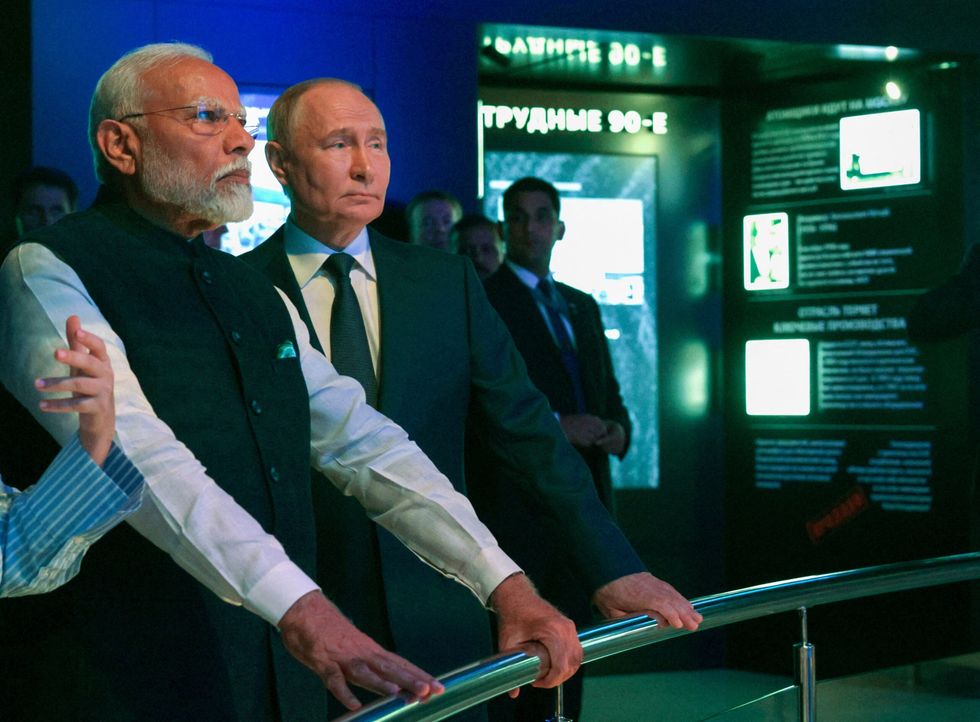
"As a friend, I have also said that for the brighter future of our next generation, peace is of utmost importance," Modi said in a speech in Hindi, sitting alongside Putin.
"When innocent children are murdered, one sees them die, the heart pains, and that pain is unbearable."
Modi said he and Putin had discussed Russia's campaign in Ukraine during his visit to Moscow.
"As a true friend, we were together and chatted on a range of issues," Modi said.
"And I was happy that on Ukraine, we could both express our views openly and in detail."
"I know that war cannot solve problems; solutions and peace talks can't succeed among bombs, guns, and bullets," Modi added. "And we need to find a way to peace through dialogue."
Putin, speaking before Modi, said their two countries enjoyed a special strategic partnership and thanked him for his efforts to find a peaceful solution to the war.
He welcomed Modi in the Kremlin for talks on deepening the bilateral relationship, a day after the United States said it had raised concerns with India about its ties with Moscow.
"Our relations have the character of a particularly privileged strategic partnership," Putin said.
"I thank you for the attention you are paying to the most acute problems, including trying to find ways to resolve the Ukrainian crisis, above all by peaceful means, of course."
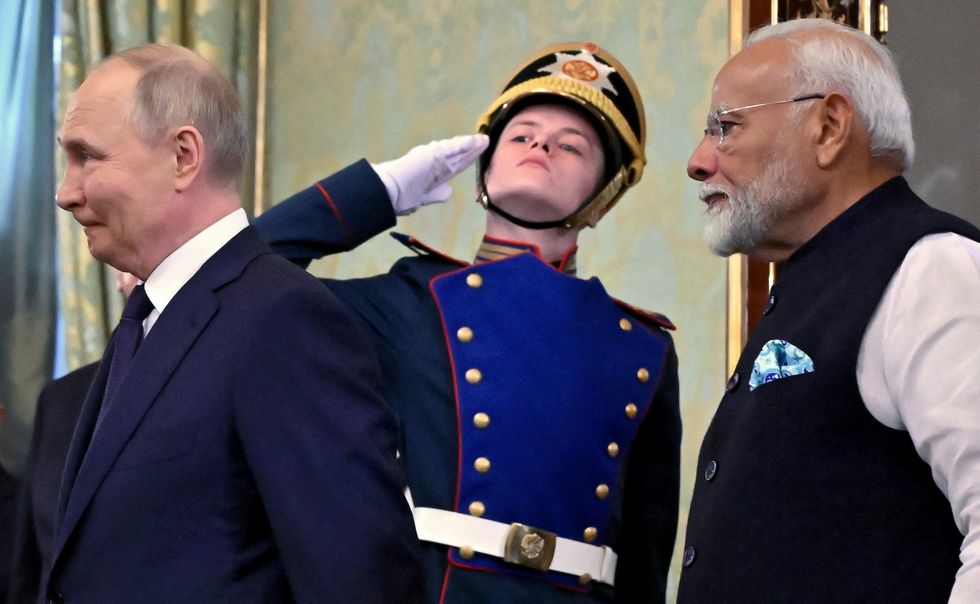
Russia is a vital supplier of cut-price oil and weapons to India, but Moscow's isolation from the West and growing ties with Beijing have impacted its partnership with New Delhi.
Western powers have in recent years also cultivated stronger relations with India as a hedge against China and its growing influence across the Asia-Pacific, while pressuring New Delhi to distance itself from Russia.
The United States on Monday urged Modi to make clear in his talks with Putin that "any resolution to the conflict in Ukraine must... be one that respects the UN Charter with respect to Ukraine's territorial integrity."
Modi last visited Russia in 2019 and hosted Putin in the Indian capital two years later, weeks before Russia began its offensive against Ukraine.
India has largely shied away from explicit condemnation of Russia ever since and abstained on United Nations resolutions targeting the Kremlin.
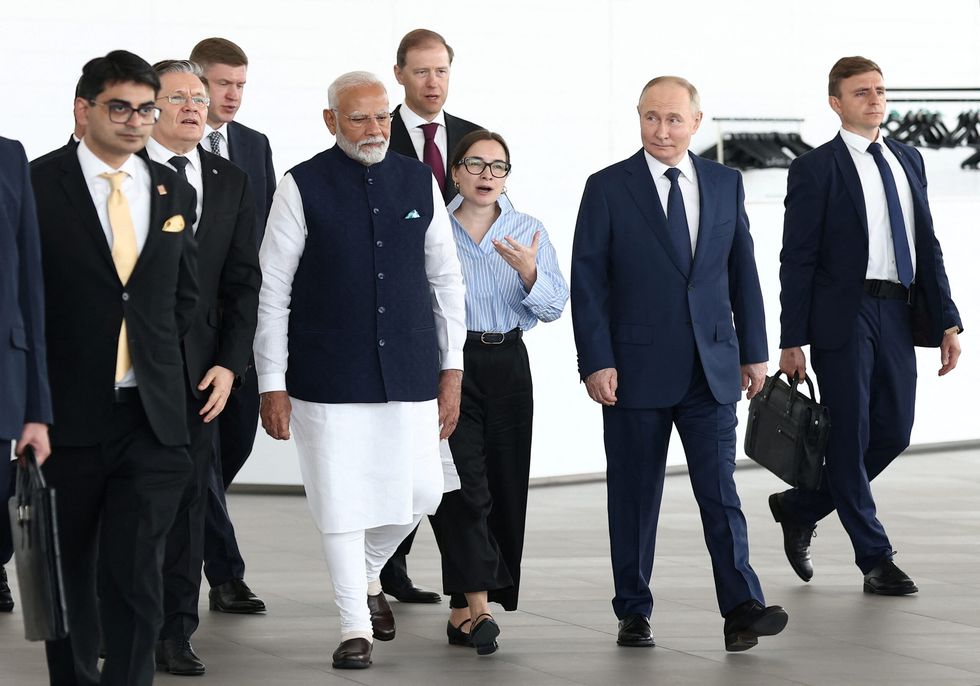
But Russia's fight with Ukraine has also had a human cost for India.
New Delhi said in February it was pushing Moscow to return several of its citizens who had signed up for "support jobs" with the Russian military, following reports some had been killed after being forced to fight in Ukraine.
Moscow's relationship with China has also been a cause for concern.
Washington and the EU accuse China of selling components and equipment that have strengthened Russia's military industry -- allegations Beijing denies.
China and India are also competing for strategic influence across South Asia.
India is also part of the Quad grouping with the US, Japan, and Australia that positions itself against China's growing boldness in Asia.
New Delhi and Moscow have maintained close links since the Cold War, which saw the Kremlin become a key arms provider to the country.
But Ukraine has stretched Russia's weapons supplies thin, pushing India to look for other sources for arms - including growing its own defense industry.
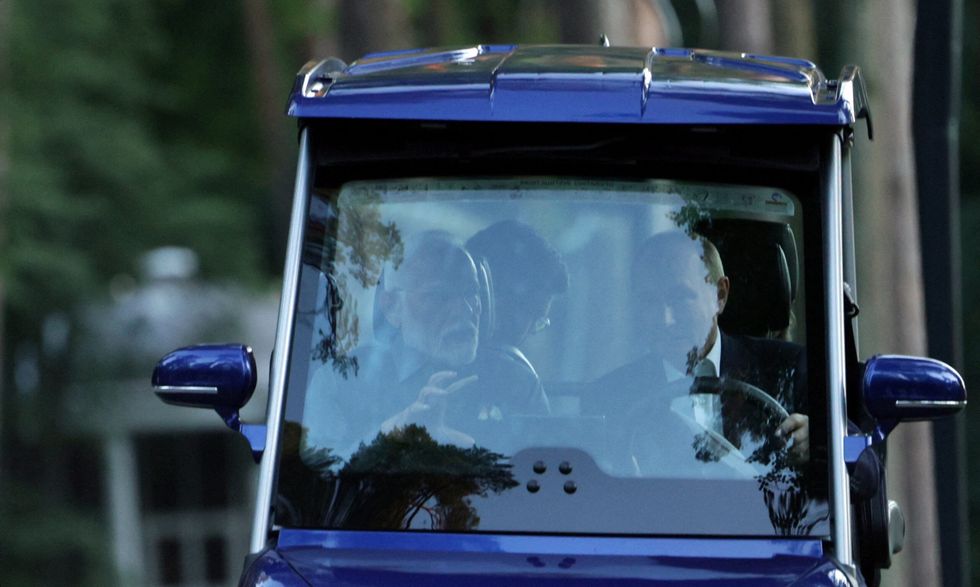
Russia's share of Indian imports of arms has shrunk considerably in recent years, according to the Stockholm International Peace Research Institute.
At the same time, India has become a major purchaser of Russian crude, providing a much-needed export market for Russia after it was dropped by traditional buyers in Europe.
That has dramatically reconfigured their economic ties, with India saving itself billions of dollars while bolstering Moscow's war coffers.
India's month-on-month imports of Russian crude "increased by eight percent in May, to the highest levels since July 2023", according to commodity tracking data compiled by the Centre for Research on Energy and Clean Air.
But this has also resulted in India's trade deficit with Russia rising to a little over £44.53 billion in the past financial year.
From Russia, Modi will travel to Vienna for the first visit to the Austrian capital by an Indian leader since Indira Gandhi in 1983.
(Agencies)
